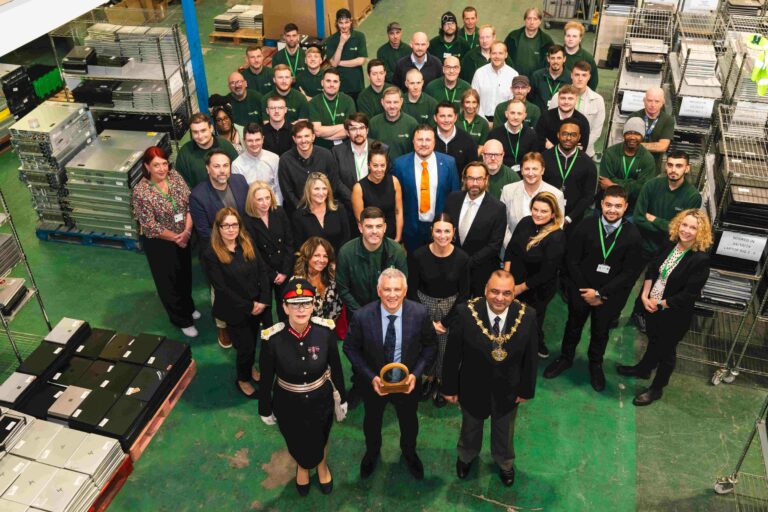With Bonfire Night on 5th November fast approaching, many are looking forward to bonfires, sparklers, and fireworks. While the event is a beloved tradition, it’s crucial to be aware of both the safety risks and legal regulations related to firework displays and bonfire gatherings.
Aditi Kanojia, a Legal Advisor at DAS Law, highlights some key legal points concerning private firework shows and Bonfire Night celebrations:
Key points:
- On Bonfire Night, the curfew for setting off fireworks extends to midnight.
- It is illegal for anyone under 18 to buy or possess fireworks in public spaces.
- All private displays must comply with rigorous safety regulations.
- Breaching these rules can lead to a fine of up to £5,000 or a prison sentence of up to six months.
Bonfire Night is an occasion many enjoy, but it’s essential to know your rights and responsibilities. From following safety guidelines to respecting neighbours, staying informed of the legal requirements helps everyone celebrate safely.
Who can buy fireworks?
It is legal for consumers to purchase fireworks at any time of the year, but you must be aged at least 18 to buy them. It is illegal for anyone under 18 to be in possession of fireworks in a public place. If you suspect a retailer of selling fireworks to a minor, you can report it to Trading Standards.
Which type of fireworks can be let off?
Fireworks are identified under four main categories in the UK, which are numbered 1 to 4. Adult fireworks (category 2 or 3) can be let off by any person on private property. Only licensed professionals can let off category 4 fireworks, whether this is on private property or within an organised public display.
What is the curfew for setting off fireworks?
On most days of the year, fireworks should only be set off on private property between 7am and 11pm. However, at certain times of the year the curfew is extended e.g. to midnight on Bonfire Night and 1 am on New Year’s Eve, Chinese New Year and Diwali.
It is important to note that local by-laws may affect these curfews, so it is worth checking with your local authority whether there are any further limitations.
How to stay on the right side of the law if you are holding your own fireworks display?
To legally host your own display without falling foul of criminal law you must be over 18, have bought the fireworks from a licensed supplier and, if you’re setting them off in a public place, have obtained permission from the relevant authority.
Whilst it is legal to set them off on private land, if you’re a tenant in a property it is worth checking with the landlord if there’s any stipulation preventing setting off fireworks in your lease.
It is important to note that you have a duty of care to ensure the safety of your neighbours and visitors if you have your own fireworks display. Check the online guidelines of the RoSPA (the Royal Society for the Prevention of Accidents) to ensure that you fully understand the necessary precautions to take.
Any negligence, such as setting fireworks off in an inappropriate environment or contrary to published instructions, that results in injury or property damage could make you liable for a civil claim.
If you are setting off fireworks on private land, it is also advisable to check your home insurance to see what cover there is for damage caused by explosion, fire or smoke. Most insurers will typically have a ‘duty of care’ clause, so you may need to show that you took reasonable precautions, if you have to make a claim.
Can you burn anything on a bonfire?
No, you cannot. Under the Environmental Protection Act 1990, it is an offence to burn any substance that will release harmful fumes causing pollution to the environment or harm to human health (this could include plastic, rubber or painted items).
You need to ensure that the fire is contained and does not escape, causing damage or injury to people. It is also an offence if anyone on a public road is “injured, interrupted or endangered” by fire or smoke from your bonfire.
Can you prevent your neighbour from having a bonfire?
It is unlikely that you would be able to prevent your neighbour from having a bonfire if they are doing so occasionally and are not burning hazardous material. If the neighbour’s fire is posing a clear risk to the safety of your property this could be reported to the fire service.
Alternatively, if the neighbour is burning hazardous material or causing harm to human health, you can report this to your local council who will investigate and serve an abatement notice if the neighbour is found to be causing a nuisance.
If a neighbour’s bonfire or fireworks damage your property, whose insurance should be claimed against?
If property is damaged because a neighbour did not contain a fire, safely light fireworks, or take appropriate steps to prevent a fire from escaping or getting out of control, that neighbour could be liable for the damage that is caused.
If it is your neighbour’s fault then they should claim on their insurance, but you cannot insist they do so. However, when faced with a potential claim for damages the neighbour may choose to get their insurance company involved instead of dealing with it themselves.
What are the legal ramifications if you are injured by a firework at a friend’s or family party?
Under the Occupiers Liability Act 1957, an occupier of land owes a duty to any visitor to take reasonable care to ensure the visitor is safe on the premises. Therefore, if someone is hosting a fireworks party, they should ensure they are purchasing the fireworks from a licensed outlet, that they read the instructions carefully before use, and that they light the fireworks from a safe place. If you are injured, you may be able to hold the organiser of the event liable.
If a firework malfunctions and you are injured, you may be able to hold the manufacturer liable under the Consumer Protection Act 1987. It is a good idea for the organiser to keep the receipt, packaging and any instructions.
What recourse do I have if my neighbour is causing a nuisance?
If your neighbour’s bonfire or fireworks are affecting you, the first step would be to raise it with the neighbour to make them aware of the impact that it has on you. If this fails, then you may be able to get a court order restricting the neighbour’s ability to have a bonfire. However, the occasional bonfire is unlikely to amount to a legal nuisance and legal advice should definitely be sought when considering legal action against a neighbour.
If your neighbour’s bonfire or firework display is likely to be hazardous to your health and unreasonably interfere with the enjoyment of your property, then you can report them to the local environmental health team. The local authority may then investigate and serve an abatement notice where appropriate.
What can I do if someone is setting fireworks off in my street late at night? What are my rights? What does the law say?
If you buy fireworks for personal use, you are only allowed to use them on your private property or property where you have the consent of the landowner. It is a criminal offence to set off fireworks in the street or other public place without permission and you can contact the police if someone is breaking the law. If you want to set fireworks off in a public place for an event, such as a street party, you will need to obtain express permission from the local authority.
What happens if you break the law?
Under the Fireworks Act 2003, if you break the law around firework use you can receive a prison sentence of up to six months or a fine up to £5,000. Breaching the act constitutes a criminal offence, but if you cause damage to property or injury to someone, you may be liable under civil law and could be sued for negligence.
Disclaimer: This information is for general guidance regarding rights and responsibilities and is not formal legal advice as no lawyer-client relationship has been created.


















